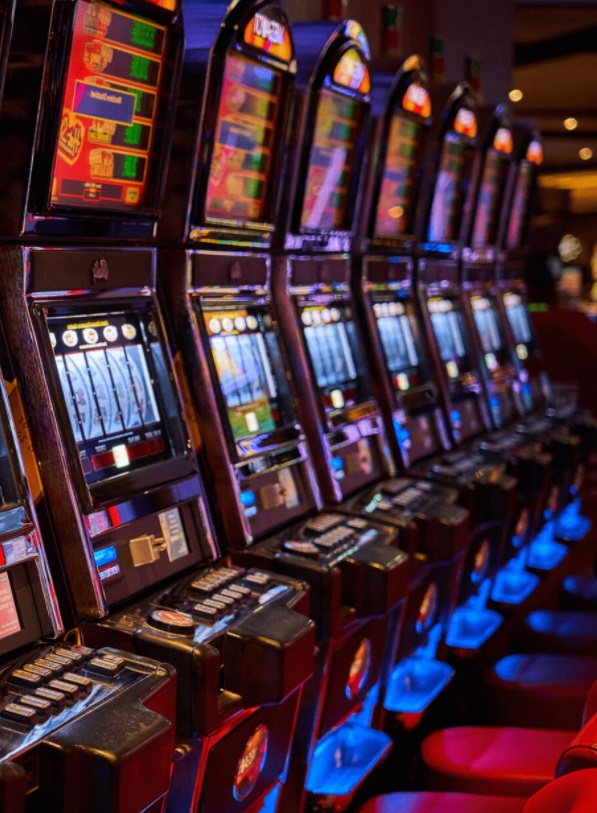
Casino games have long captured the imagination of individuals around the world, becoming an important part of both leisure and culture. From the glimmering lights of the Vegas Strip to the immersive experience of virtual casinos, these activities evoke excitement, risk, and sometimes even a sense of sentimentality. They are more than just hobbies; they have woven themselves into the fabric of human experience, influencing various aspects from film and melodies to style and books.
The allure of casino games surpasses the gambling aspect, tapping into larger themes of fortune, possibility, and psychology. As players assemble around a gaming table or rotate the wheel of fortune, they engage in an ancient ritual that resonates with our shared desire for adventure and uncertainty. This captivation has led to the rise of countless references in movies, tracks, and electronic games, showcasing how strongly entrenched these pastimes are in pop culture. Whether it is the pressure of a traditional heist movie or the lively nightlife portrayed in music videos, casino games have established a substantial place that reflects our connection with reward.
Social Significance of Gambling Games
Casino games have played a key role in social contexts throughout the ages. Stemming from old civilizations, games of chance were often connected to ceremonies or gatherings. For instance, early iterations of these activities can be linked back to ancient China and the Romans, where dice games and wagering on results were common pastimes. These activities not only served as leisure but also as methods of social interaction, facilitating relationships among people within societies.
As cultures evolved, so did the sophistication and organization of gambling games. The creation of formal casinos in the 17th century, particularly in Italy, marked a major shift in how games were perceived and organized. With specific spaces for gaming, the casino became a community center where people from various backgrounds convened. This change contributed to the legitimization of gambling, transforming it from a mere pastime into an organized industry that shaped the economy and policy.
The effect of casino games on popular culture cannot be overlooked. 78WIN As they were popularized in books and movies, games such as Texas Hold’em and 21 became symbols of chance, chance, and strategy. Famous figures and stories have developed around these activities, reflecting societal attitudes towards fortune, wealth, and immorality. This interest with gambling games has permeated various forms of entertainment, solidifying their status in the collective consciousness and linking them to broader cultural narratives throughout the ages.
Depiction of Gambling Activities in Entertainment
Gambling games have long been a popular topic in various forms of media, reflecting both the fascination and intricacies of the world of gambling. Movies such as Ocean’s 11 and Casino Royale portray individuals who navigate high-stakes environments, showcasing not only the allure of the casino atmosphere but also the strategies and decisions that come with playing popular games like poker and 21. These movies often dramatize the thrill of winning and the potential repercussions of losing, encapsulating the dangers involved in gambling.
Television shows have also explored the world of casino games, often integrating them into the plot as a context for story progression and conflict. Series like Vegas depict the lives of gambling employees and patrons, highlighting the dynamic, often tumultuous energy of the casino floor. Docuseries featuring intense betting contests further emphasize the appeal of gambling activities, drawing viewers into the excitement and strategy involved in each session. Through these portrayals, media not only amuses but also sparks conversations about luck, expertise, and the essence of chance. https://78win01.cfd/
Gaming have increasingly included gambling activities into their development, allowing players to experience the experience of betting without financial exposure. Games within the realm of online gaming often include online slot machines, poker, and other popular casino games, creating an interactive experience that mirrors real-life gameplay. These virtual portrayals make casino games accessible to a broad demographic, appealing to both risk-takers and those who enjoy the rush of virtual experiences. As a consequence, the representation of gambling activities in media continues to shape cultural attitudes and cultural relevance, highlighting their role in society and the cultural landscape.
Impact of Casino Games on Communities
Casino games have a meaningful impact on society, affecting various facets of culture and interpersonal behavior. They often function as a platform for community engagement, where people come together to experience a common activity. Casino trips with friends or trips to casinos become social activities that foster connections and create shared moments. This collective aspect boosts the fun value of casino games, making them a favored choice for festivities and recreational pursuits.
Additionally, casino games have been depicted in countless movies, television shows, and literature, shaping views and attitudes towards gambling and gaming. Icons like James Bond playing baccarat or the high-stakes poker scenes in films have embedded these games in the shared imagination. This representation often glamorizes the culture associated with casino activities, drawing in new players and influencing trends in both style and conduct. These representations can spark curiosity and lead to a more profound exploration of the nuances of gambling.
However, there are also adverse implications linked to the widespread appeal of casino games. The temptation of quick monetary gain can lead to gambling addiction and economic troubles for some individuals. Society must grapple with these issues, advocating for responsible gaming and education of the risks involved. Finding a balance between the entertainment value of casino games with the potential for harm is crucial to ensure that they remain a positive aspect of our cultural landscape.